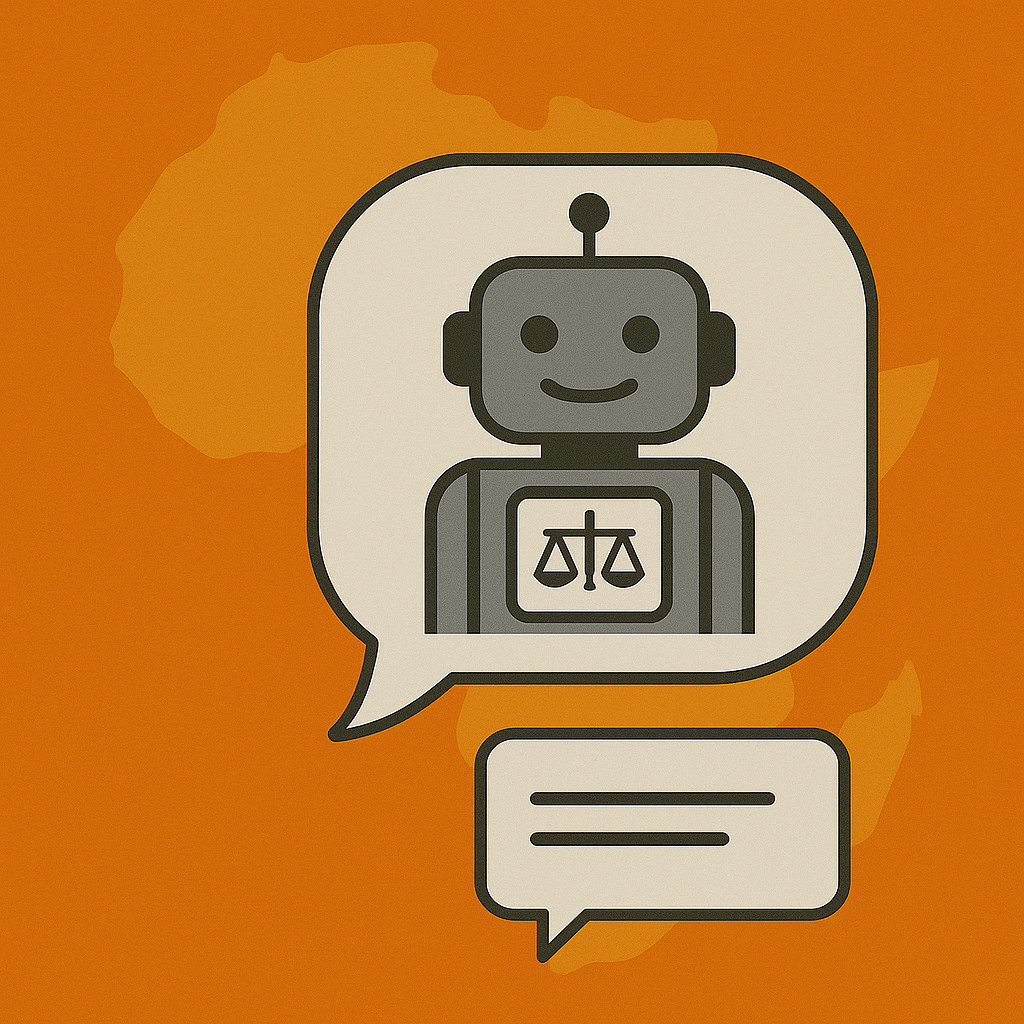Executive summary
This project aims to design, test, and deploy an AI-powered legal chatbot tailored to African legal systems. It will allow citizens to ask questions related to their legal rights and receive accurate, understandable, and localized responses. The pilot countries are Benin and Madagascar, with an initial phase focused on testing safety, accuracy, and ethical alignment. The overarching goal is to democratize access to legal information through responsible, community-informed AI designed with African realities in mind.
Background and rationale
Access to justice remains severely limited across many African countries. A 2022 Afrobarometer study found that only 13% of Africans had contact with courts in the previous five years. Of those, 54% reported difficulties obtaining legal assistance, 47% struggled to understand legal procedures, and 30% admitted having to pay bribes to access legal services (Afrobarometer, 2022a).
These challenges are particularly severe for rural, low-income, and under-educated populations, who face twice as many obstacles in accessing justice compared to more privileged groups (Afrobarometer, 2022b).
Meanwhile, digital connectivity across Africa is rapidly expanding. The International Telecommunication Union (ITU) reports that in 2023, Africa had over 570 million internet users, equating to a 43% penetration rate— with countries like Benin and Madagascar showing fast-growing mobile usage (ITU, 2023).
However, applying generative AI to the legal domain poses critical risks. A 2023 study (Magesh et al., 2024) found that even advanced language models may generate factual or legal inaccuracies (‘hallucinations’) in 17% to 33% of outputs, even when using Retrieval-Augmented Generation (RAG) methods . A 2024 paper further notes that hallucination rates can reach 58% to 88% for certain legal prompts when unspecialized models are used (Dahl et al., 2024).
This evidence underscores the need for a context-sensitive, rigorously tested, and human-supervised approach. By combining AI with structured legal data and academic evaluation (e.g., law students from local universities), the project will build a responsible and inclusive solution to bridge Africa’s digital and legal divides.
Objectives
– Improve equitable access to legal information for underserved populations in Africa through AI.
– Bridge the gap between legal knowledge and civic understanding, particularly for non-lawyers.
– Ensure that generative AI applied to law is safe, ethically sound, and locally grounded.
– Build a replicable and scalable legal AI governance framework tailored to African contexts.
Expected results
– A functional legal chatbot prototype deployed in Benin and Madagascar, capable of handling at least 80% of common legal queries related to civil and family law in the national language(s).
– A digitized and structured legal corpus for both countries, including:
– 100+ legal texts (laws, decrees, codes, FAQs),
– Classified and vectorized for use with Retrieval-Augmented Generation (RAG).
– Evaluation report on model performance, safety, and usability.
– Policy recommendations for regional rollout.
– A reusable and open technical and ethical framework for AI in law in Africa.
Impacts
– Broader access to justice for underserved populations : at least 100,000 citizens across Benin and Madagascar within the first 12 months of deployment.
– Increased legal literacy among African citizens, targeting a 30–50% improvement in user-reported understanding of rights and procedures after using the chatbot.
– Reduction of the information gap between citizens and the law.
References
- Afrobarometer (2022a). Access to Justice in Africa – Press Release #17. https://www.afrobarometer.org/wp-content/uploads/2022/02/ab_r6_pr17_access_to_justice_eng.pdf
- Afrobarometer (2022b). Policy Paper No. 39 – Barriers to Accessing Justice. https://www.afrobarometer.org/wp-content/uploads/2022/02/ab_r6_policypaperno39_access_to_justice_in_africa_eng.pdf
- Dahl, M., Magesh, V., Suzgun, M., & Ho, D. E. (2024). Large Legal Fictions: Profiling legal hallucinations in large language models (arXiv preprint arXiv:2401.01301). arXiv. https://doi.org/10.48550/arXiv.2401.01301
- International Telecommunication Union (2023). Measuring Digital Development: Facts and Figures 2023. https://www.itu.int/en/ITU-D/Statistics
Magesh, V., Surani, F., Dahl, M., Suzgun, M., Manning, C. D., & Ho, D. E. (2024). Hallucination‑Free? Assessing the Reliability of Leading AI Legal Research Tools. - Stanford Digital Humanitarian Observatory. https://dho.stanford.edu/wp-content/uploads/Legal_RAG_Hallucinations.pdf

